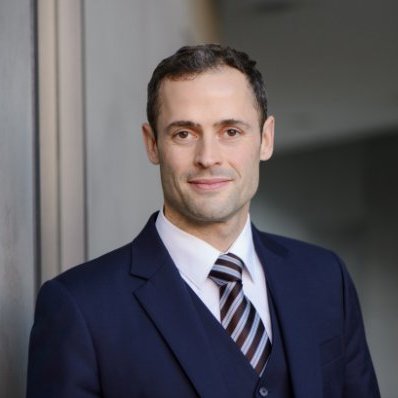
Peter Georg Picht
studied law at Munich University and Yale Law School, did his PhD (summa cum laude) at Munich University/the Max Planck Institute for Innovation and Competition, and holds a masters degree from Yale Law School. He has been working, i.a., in the EU Commission’s DG for Competition, as a Senior Research Fellow with the Max Planck Institute for Innovation and Competition, as well as with the law firms Allen&Overy and Linklaters.
Prof. Picht now holds a chair for Commercial Law at the University of Zurich and is head of the University’s Centre for Intellectual Property and Competition Law (CIPCO). He remains affiliated to the Max-Planck-Institute as a Research Fellow.
Prof. Picht’s academic teaching and writing, as well as his counseling activity, focus on intellectual property law, competition law, international private and procedural law, in particular trusts and estates. In these fields, he has advised governments, companies, foundations, trusts and other legal entities, as well as private persons and families. Prof. Picht is admitted to the bar in Germany and Switzerland (Art. 28 BGFA).
For more information or to contact Prof. Picht, please visit his University Profile Page.

Recent Articles by Peter Georg Picht
Antitrust agency communications, such as the EU Commission’s Horizontal Guidelines and the FTC/DOJ Licensing Guidelines underline that market power does not necessarily result from patent ownership as such. They contain, however, no specific language on standard-essential patents which are – if they are valid and truly standard-essential – different from other patents in that they must, by definition, be used in order to operate on the respective standard-based market. In Europe at least, it seems to be increasingly accepted that SEPs can convey market power but that they do not necessarily always do so. Advocate General Wathelet’s proposition (para. 57 et seq. of his opinion in the Huawei/ZTE case) to establish a rebuttable presumption that SEP ownership generates market power has not been taken up by the CJEU’s Huawei/ZTE-decision, probably because the parties already agreed that Huawei held a dominant position (para. 43). But court decisions from the UK (for instance Unwired Planet/Huawei, a summary of the case is provided here) and Germany (for instance LG Düsseldorf, 26.3.2015, 4b O 140/13) have taken a case-sensitive approach, looking not only at the leverage generated by a SEP but also at circumstances which may limit its holder’s power.

![[IPWatchdog Logo]](https://ipwatchdog.com/wp-content/themes/IPWatchdog%20-%202023/assets/images/temp/logo-small@2x.png)